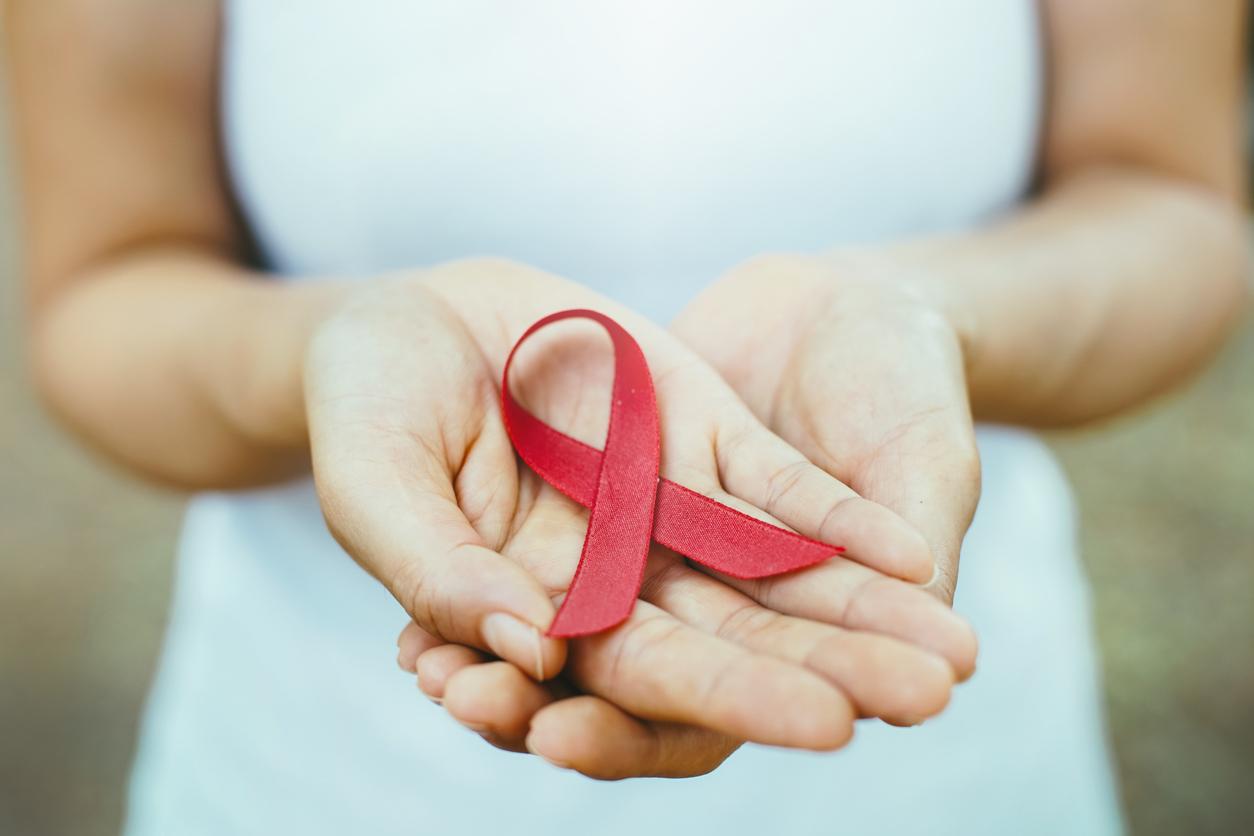An experimental vaccine against HIV, the AIDS virus, has been successfully tested in monkeys according to a study published this Thursday, July 2 in the journal Science.
This is a “double-trigger” vaccine, which acts in two stages. First, the immune system is “prepared” to face HIV by another pathogen. Then, this immune system is boosted using a protein located on the envelope of HIV, the human immunodeficiency virus responsible for AIDS. According to the researchers, this two-step technique may be the best protection strategy against HIV infection.
Here, the monkeys were first injected with vaccine against an adenovirus, a kind of virus linked to many infections in humans. In this way, the immune system of the monkeys was already stimulated. Subsequently, the researchers injected them with a kind of booster, with the addition of a purified protein from the envelope of HIV, triggering a stronger reaction of immune cells. This innovative approach, which aims to increase the magnitude of the immune response and extend protection against subsequent viral attacks, had already been used successfully in vaccines against the Ebola virus.
In this study, this type of experimental vaccine provided complete protection against the simian immunodeficiency virus (SIV, similar to HIV in humans) in six of the twelve monkeys vaccinated.
This work also shows that there is a very strong link between the protective capacity of this vaccine and the number of antibodies (cells of the immune system) produced to fight the virus in question, which gives a lot of hope for the future. human testing.
A phase 1 clinical trial is currently underway with healthy volunteers to assess the safety of this experimental vaccine.
In addition, the American pharmaceutical group Johnson & Johnson, whose researchers are participating in this work, is currently recruiting 400 volunteers in the United States and Rwanda to conduct a phase 1-2 clinical trial in order to more precisely assess this new vaccine approach. . He also plans to recruit them in South Africa, Uganda and Thailand.
“Despite significant progress in the treatment of HIV infection, this virus remains one of the greatest threats to global public health, with millions of people infected each year,” recalled Dr Paul Stoffels, director. general of Johnson & Johnson, quoted by AFP. “Our ultimate goal is to develop a vaccine against HIV and we hope that one day we will help eradicate this virus. “
We just have to wait for the results of the phase 1 and 2 clinical trials to see if these very encouraging results are found in humans.
Read also :
HIV / AIDS: do you have any misconceptions?
HIV: how does it work in the body?
AIDS: Truvada effective in preventing HIV
















